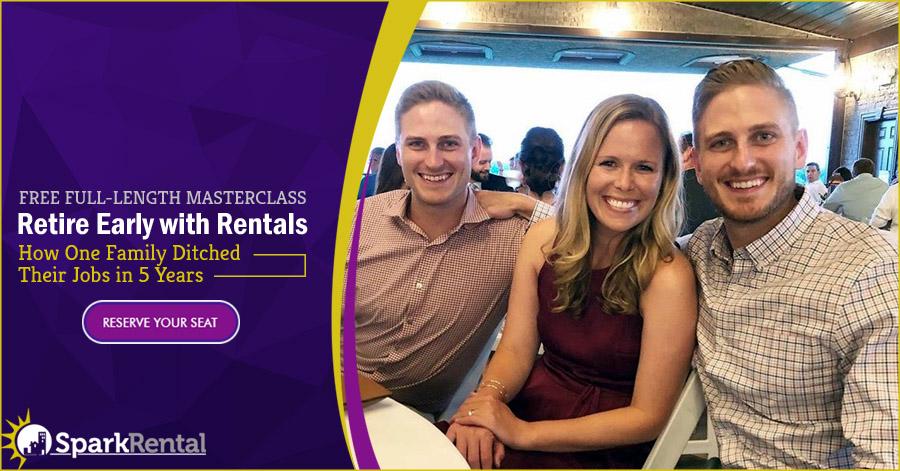
This is a guest post by Bethany Ramos, a writer and real estate financing expert with Cornerstone Home Lending.
Buying an investment property sounds like a far-off fantasy when you buy your first house. But it may comfort you to know that investment home sales are holding steady.
In 2016, the National Association of Realtors confirmed that 30 percent of all home sales were for vacation properties, purchased either by investors or individual buyers. Vacation home sales for homeowners dropped for the third year in a row, but investor sales remained stable.
Interested in Buying an Investment Property? 3 Subtle Differences
If the time is right, and you want to put your savings toward a property and consider branching out as a landlord, prepare for several differences in investment property loans compared to a standard owner-occupied mortgage.
For starters, they can be more expensive. And second, larger down payments are required — mainly because lenders look at investment properties like business loans, making them a riskier financing option.
After all, as a landlord would you default on your home mortgage first, or your investment property loan?
Sit down with your lender to get your questions answered, and they’ll tell you that, while comparing a home loan to an investment property loan can be confusing, there are but a few distinctions. “The main differences between a primary residence and an investment property home loan are the interest rate, costs, and required down payment,” Kelly Zitlow, Vice President, CMPS, at Cornerstone Home Lending, Inc., in Scottsdale, says.
As you look into buying an investment property, keep it simple, and go in with both eyes open. Remember Zitlow’s words, and stick to these facts:
1. An investment home’s interest rate may be higher.
Interest rates on owner-occupied home loans are roughly 0.375 to 0.625 percent lower than an investment property loan, Zitlow says. In translation, this means that an investment property loan may come with a slightly higher interest rate that costs you more for your monthly payment. There is a workaround, thankfully, that you can use when prequalifying for a home loan or an investment property loan.
Remember this: Put effort into maintaining your credit. Good credit could help lower your rate on an investment property loan, which will, in return, maximize your return on investment.
2. Extra costs may be attached to an investment home’s purchase.
Homeowners know that buying a house, while exciting, is never as straightforward as it seems. Working with a trustworthy lender and Realtor can take a lot of guesswork out of the process — helping you to understand exactly what fees you may be required to pay before closing.
Remember this: When purchasing an investment home, other costs may apply. Zitlow estimates that the average appraisal cost on a primary residence is $450. Some investment property guidelines require additional appraisal forms, which can increase the appraisal cost by $50 to $100. Lender fees are often higher as well, compared to owner-occupied mortgages.
3. Compared to a home loan, investment property down payments aren’t as fluid.
It’s the scary thought of making a big, fat down payment that holds many people back from buying a house. But when getting a home loan, the 20 percent rule no longer applies. A 6 percent down payment for first-time buyers is a better ballpark figure. With an investment property loan, mortgage lenders may not be willing to provide as much leeway. Shelly D. Johnson, Divisional Risk Manager at Cornerstone Home Lending, Inc., says, “The minimum down payment required for investment properties ranges from 15 to 25 percent, compared to a minimum down payment for primary or second homes ranging from 3 to 15 percent.”
Remember this: FHA and VA home loans are only offered on primary residences (although they can be used to house hack with a 2-4 unit property!). Conventional loans offer down payments as low as 3 percent on primary residences, but investment property loans require a minimum of 15 percent down.
How to buy an investment property — and keep the down payment down
“Down payment requirements are difficult to overcome on investment properties as conventional home loans require a minimum of 15 percent,” Zitlow reminds us. “Good credit and income won’t offset the down payment requirements.”
But from the mouth of every honest mortgage lender comes a few “troubleshooting” solutions. To get the most out of an investment property purchase, Zitlow recommends to:
- Look at an investment property as a business. There will be additional monetary investments needed annually, Zitlow explains, and having reserves to offset vacancies is recommended. Fortunately, you can use your gains to stay ahead. As your real estate investment appreciates over time, it can provide a great way to balance your financial net worth portfolio.
- Reduce risk with an LLC. If your investment property has turned you into a full-time landlord, consider protecting your assets by forming a single LLC — considered the most common type of entity utilized by real estate investors. The LLC will hold your investment property, limiting your personal liability in the unfortunate event a tenant or contractor sues. You can read more about the pros and cons of forming an LLC for an investment property here.
- Get on top of your taxes. Tax breaks for landlords abound, but because we’re all busy, often forgetting to cross our t’s and dot our i’s, thousands of dollars in annual deductions get overlooked. For the current tax year, TurboTax lists refinance mortgage points and moving expenses to be among some of the most frequently missed deductions. After buying an investment property, don’t let valuable savings slip through the cracks. Consult a tax advisor to get guidance on landlord-specific deductions at tax time.
A mortgage lender who is willing to work with you and answer your questions can help you to purchase an investment property when you’re financially ready. While it may be hard to avoid the conventional investment property down payment minimum of 15 percent, some investors recommend exploring funding alternatives — like tapping into retirement funds, buying real estate with credit cards, crowdfunding or seller financing, both of which come with some risk attached. Purchasing a smaller investment property can also keep down payment costs low and let you gain experience. Many successful investors began with a $150,000 home or apartment.
Bethany Ramos is the Creative Writer for Cornerstone Home Lending, Inc. Her work has also been featured on SheKnows.com, Time.com, Yahoo.com, Mamamia.com.au, Babble.com, and HuffingtonPost.com.
The Legal Stuff: For educational purposes only. Please contact your qualified professional for specific guidance. Sources are deemed reliable but not guaranteed.























I remember being surprised when I bought my first rental property at how much more difficult it was than a home loan. And strangely enough, it only got harder, while I was still getting conventional loans. Now I use community banks with portfolio loans and it’s a lot easier (but I have to put down 25%).
Interesting tips. Thanks for sharing!
Glad you found them helpful Nico!
Transfer my business there.